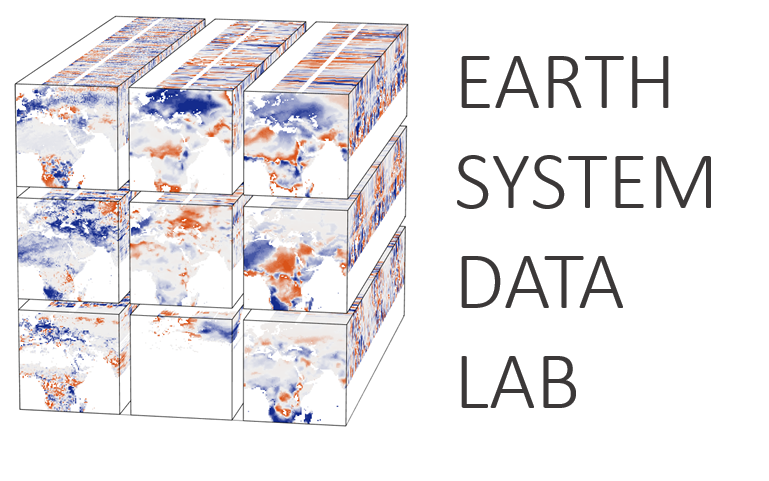Announcement of Opportunity
Background
Over the past years, ESA and partner organizations have released unprecedented amounts of Earth observations and derived model data. In 2012, following up on a joint initiative by ESA and iLEAPS (ileaps.org/), an Earth System Data (ESDL) was initiated to advance the possibility of co-exploring these data streams for generated added scientific values – beyond the initial and specific objectives of the individual data. The ESDL focussed particularly on the exploitation of downstream Earth system data products such as those produced by the ESA Climate Change Initiative (CCI, climate.esa.int/) where a wide range of essential climate variables have been produced.
The fundamental idea behind ESDL is to enable the joint analysis of multiple Earth system data streams, in an interdisciplinary approach, supporting the understanding of the interactions between the Earth’s subsystems. To this end, users find various pre-computed data cubes in analysis-ready form on the platform or may generate their own data cubes leveraging the tools and services provided by ESDL. All datasets adhere to a common open-source data cube specification based on xarray’s data model, the CF convention, and the cloud-ready zarr file format (find the full specification here https://xcube.readthedocs.io/en/latest/cubespec.html), which greatly facilitates joint exploitation of datasets with different origin. A data cube essentially consists of pre-curated data streams with the dimensions “latitude”, “longitude”, “time”, “variable”. Further dimensions can be added as a result of any user-specific analysis’. Computations are executed close to the data on the platform in the cloud. Generic interfaces enable users to easily access these data cubes via Python’s data science stack.
DeepESDL has been specifically designed to facilitate collaborative research in all Earth System Sciences by individuals and teams. The platform is built around a Virtual Development Environment with customizable Python Environments specifically supporting common ML and AI packages and shared workspaces. Data access is enabled through so-called xcube stores, which offer a common xarray API for a growing number of data sources and interfaces (ESA CCI, Copernicus C3S, Sentinel Hub, OGC coverage, S3, …) and facilitate the creation of fully reproducible data generation recipes. Computational resources can be adapted to the project’s requirements and may include GPU for demanding AI applications or on-demand dask cluster for chunk-based processing. Moreover, users can select from different options for visualisation, within Jupyter notebooks with xcube viewer or via visualisation services for xcube viewer, 4D viewer of Lexcube. Please refer to DeepESDL documentation at https://deepesdl.readthedocs.io for full details.
ESDL is now developing new approaches that enable advanced deep learning approaches for generating new insights into the functioning of the Earth system via the DeepESDL continuation project.
Announcement of Opportunity & Package
The DeepESDL team and ESA invite teams of researchers in Earth Sciences to exploit the platform’s data and services for their research and, by this means, co-shape the future developments of the ESDL. Teams comprise at least two researchers from any Earth Sciences discipline who will work together on the project. Team members have individual logins but share a workspace and computational resources to foster collaboration.
Becoming a user of the platform comes with the following benefits:
- Get access to JupyterHub,
- exploit computational resources,
- use the tooling for machine learning and visualisation,
- benefit from existing data cube offer and simplified access to remote data sources,
- collaborate in a team and share data and other artifacts with your team members,
- co-develop the ESDL via regular direct interactions with the team,
- make suggestions for further data ingestion and on-demand data cube generation,
- receive direct consultations with the developer team.
- right to participate in a workshop at IGARSS 2024 in Athens for presenting the results of the projects and for exchanging with colleagues.
No financial benefits can be granted, but collaborations for ongoing research proposals can be negotiated. The Announcement remains open until filled. All proposals are evaluated by a team of experts from the platform and the European Space Agency.
Please submit your short proposal 2-5 pages by uploading it below. Your proposal should contain the following information:
- Name, E-Mail address, affiliation, github user name of the PI
- Team members (if applicable with the same information as above)
- Your research question and expected results
- References contextualizing your research questions
- Short description of methodology
- Detailed data needs
- Computational resources including storage
- Expected length of your project


